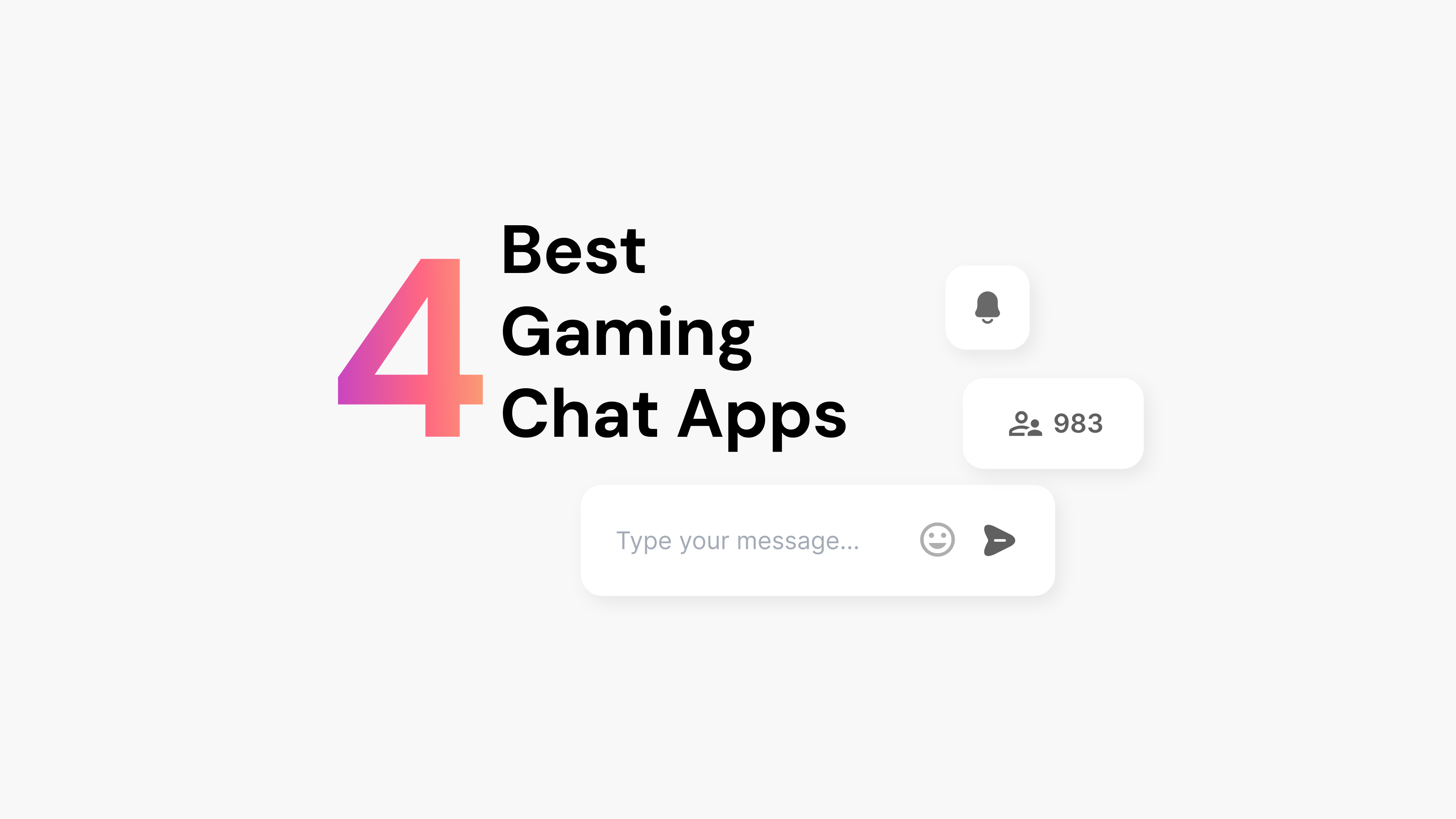Virtual events in higher education are among the most potent ways to engage students, alumni, staff, and faculty. The COVID-19 pandemic forced many colleges and universities to improve their virtual events and, today, virtual events are still critically important as flexibility is now expected.
Despite their growing popularity, running engaging online events and hybrid events doesn’t come easy to everyone. There are new tools to learn, like live chat and live blog. It’s not just a question of technology either.
It’s also essential to adjust your event planning methods as well. Some elements of traditional offline events for higher education, like understanding your audience and their goals, fully apply to virtual events. Other requirements like maintaining high levels of digital engagement require new techniques.
Virtual Events, Hybrid Events, or In-Person Events: Which Is Best?
Now that the pandemic is behind us, event organizers are asking themselves what type of event they should focus on. There are three main types of events for higher education, and they all have a role to play.
In-Person Events
This traditional event category is excellent for deep connections. There’s nothing quite like sharing a slice of pizza and a drink to engage prospective students!
The downside to in-person events is the significant cost (e.g., catering and event space) of organizing these events. In addition, in-person events have a limited audience. Only people near the event venue can easily participate in the event.
Virtual Events
Virtual events for higher education offer several advantages to students, alumni, and faculty. Compared to traditional gatherings, a virtual experience is fast and inexpensive to organize. It’s also possible to invite large groups to participate in the event. The registration process can be simple – simply offer an online form.
Hybrid Events
A hybrid event features a combination of in-person and virtual participants. Hybrid events offer the best of both worlds when they are well-planned and executed. That said, it does take some practice to make this event work.
While our focus is on virtual events in higher education, in-person events and hybrid events are valuable. All three types of events have a role to play in keeping students engaged.
Check out these virtual event ideas to help you save time in planning your next virtual event. Look at these ten ideas as a buffet menu: pick and choose the types of events that are most relevant to your needs.
Once you have a virtual event for higher education idea in mind, check out this post – 8 Virtual Event Strategies For Universities To Keep Students Engaged and Entertained – for tips on organizing your online event.
Top 10 Trends for Virtual Events in Higher Education
1. Virtual Alumni Homecoming

Keeping alumni engaged in college or university after graduation is essential for a few reasons. Alumni donations to colleges were worth $11 billion in 2019 alone, according to US News. In addition to financial support, many alumni are interested in growing their networks and having fun with other alumni and college leaders.
Organizing a virtual alumni homecoming event is a great way to engage graduates for a few reasons. A virtual event eliminates travel time and allows people living far from campus to participate. Making the individual sessions of homecoming easy to attend is crucial to appeal to attendees who have significant family and work responsibilities.
To make your virtual alumni homecoming event memorable, offer a combination of content and connection. Content means offering insights relevant to the alumni audience, like inviting a successful graduate to share lessons from their career. Connection means giving alumni plenty of time to interact through live chat and other means.
2. Virtual Graduation Ceremony

Graduating from college is a significant accomplishment! It takes years of focused study and hard work to achieve. It’s important to celebrate this achievement with a graduation event.
A virtual graduation ceremony, or a hybrid event, is wise to offer. Many students move to new states or cities after finishing their studies to start the next chapter of their lives. As a result, graduates may find it difficult to attend a formal event.
Students aren’t the only beneficiaries of a virtual commencement event. In a traditional event, there is limited seating. A student might only invite one or two people to see them receive their diploma. With a virtual graduation event, it’s easy to attend many more participants.
3. Virtual Fundraisers

As mentioned above, donors to higher education contribute billions to colleges and universities annually. When donors are engaged and treated well, donors are likely to donate even more over time. To maximize donations to higher education, offering virtual fundraisers is smart.
Large institutions tend to have alumni spread over a large area. For example, the University of Central Florida has more than a dozen chapters across the US and other countries. Relying solely on in-person events would mean most alumni leaving far away would not have a chance to participate in fundraisers and other events.
Virtual fundraisers for higher education can take a variety of formats. For example, the Borough of Manhattan Community College (BMCC) held a virtual fundraiser in 2021. This event featured stories from students and recognition opportunities for donors. Benedictine College, based in Kansas, held a highly successful virtual fundraiser in 2021 that generated over $1.1 million in donations. To develop your virtual fundraising concept, review the examples above for inspiration.
4. Virtual Fun Run

Sitting at a desk for long periods to study is unavoidable. Yet, maintaining physical fitness is important to manage stress and live a healthy life. That’s why more organizations are organizing virtual fun-run events.
Virtual fun run events have two elements. Participants run the set distance or time for the event. The next element is a digital gathering to celebrate the event. For example, you might recognize the people who had the fastest runs!
To show how a virtual fun run is organized in practice, look at Florida Memorial University. This university offers multiple fun run events and charges a ticket price for each event. Proceeds from the fun help the university to fund scholarships.
Virtual fun runs are popular because of their flexibility. Participants can choose where to perform the activity, as long as they track and send it to the organizers. From there, organizers will take note of the distance and time, and medals will be mailed to the winners.
5. Virtual Happy Hour Activities

Bringing students together to enjoy beer and other drinks is a time-honored tradition at many colleges and universities. This unstructured social event is a great way to encourage students to make friends and connections.
Virtual happy hour events are worth offering for a few reasons. First, a traditional happy hour event may not work well for students with substantial work schedules. In addition, some students are not interested in consuming alcohol for various reasons.
A virtual happy hour event tends to work best when there is a specific theme or activity for everyone to enjoy. For example, you might invite people to play a game like “Two Lies and A Truth” to get to know their fellow students more.
Also, you might organize a virtual Bingo game. Rather than using traditional cards with numbers, replace them with words or phrases everyone in the group can relate to. By hosting this type of virtual event, you will leave your participants entertained, happy, and engaged throughout the session.
6. Virtual Dance Events
Like the virtual fun run, a virtual dance is a fantastic way to encourage people to move around while connecting with others. Dancing online has exploded in popularity over the past few years, thanks to TikTok. See this guide to 21 of the most popular TikTok dances to get inspiration.
Columbia University shows that virtual dance events can be short and sweet. Columbia has organized a 30-minute “dance break” event for students. Organizing this type of event when student stress is high – like during exam season – is one way to support students facing pressure.
In general, it is best to encourage a range of dance styles. Some students might like hip-hop styles, while others might not have a recognized style. All kinds of dance are enjoyable! The important part is to share a love of music and movement with your fellow students.
7. Virtual Book Club For Students or Alumni

Virtual book clubs are one of the best ways of bringing together students and alumni. For example, you might organize a virtual book club to help students discover new perspectives and enjoy fruitful discussions with their peers. There are a few different ways to organize this kind of event.
The University of Toronto alumni virtual book club takes a gradual approach. Alumni read a few chapters of the book and share their thoughts on a discussion board. Taking a slower approach is an excellent way to appeal to busy working professionals who may have limited time to participate in the event.
You can also use virtual book clubs to engage students with shared concerns. Washington State University has organized a virtual book club for those interested in disability issues. This focused book club concept can be adapted to suit a wide variety of student interests, including careers (e.g., finance book club) or types of fiction (e.g., science fiction and fantasy book club).
To make the most of each virtual book club session, check out Arena’s education solutions. With live chat, you can make it easy for students to ask questions, discuss their favorite characters and find students with common interests.
8. E-Sports Tournament

Fitness is great, but sometimes there is nothing like enjoying a few hours of gaming with your friends. E-sports – playing competitive video games – has become one of the most popular leisure activities for young people. By some estimates, there are over 200 million E-sports enthusiasts today.
An e-Sports tournament is a popular choice for college and university students as a virtual event. For example, Siena College has an e-Sports team that plays various games, including League of Legends, Fortnite, and Super Smash Bros Ultimate.
Unlike other events, e-Sports events are digital by design. That’s great because there is no need to adapt the activity to work in a digital environment.
To spark even more excitement for e-Sports, organize an e-Sports competition focused on charitable fundraising. If the fundraising idea appeals to you, look at the Esports Foundation. The organization brings together gamers to make the world a better place!
9. Virtual Meditation and Awareness Sessions

According to the American Psychological Association, anxiety and depression are prevalent mental health difficulties for college students. Supporting students through these challenges requires multiple approaches, including mental health professionals and medication. Providing virtual meditation events can also help support students to thrive as well.
UCLA offers free weekly drop-in meditation sessions to help students. These half-hour sessions are offered twice a week. In addition to video conferencing, you might also add live chat to the session so students can ask questions without disturbing other participants.
Some research suggests that offering meditation sessions can significantly impact students. A 2019 study found that offering a six-week yoga and meditation program “may reduce stress and anxiety in college students.”
10. Virtual University Orientation Week

Open week, frosh week, orientation week: the activity goes by various names. Whatever your college calls it, orientation week activities are a crucial way to introduce students to higher education. With the right approach, an orientation week with a focus on academic skills can lift graduation rates.
Some aspects of orientation week are best delivered in person, like taking students on a tour of important buildings and facilities at your campus. However, some orientation events work well in a virtual environment. In your list of sessions, try some of these ideas.
Virtual study skills event
This academic-style event helps students learn how to boos their study and research skills using your college’s educational resources. For example, a traditional arts program might have learning outcomes like critical thinking and writing skills as a focus. Introducing your college’s writing center can help students get started.
If your college offers digital learning options, you may also want to cover how to make the most of online classes.
Meet upper-year students
Senior students have a lot of insights to share with students. Host a virtual mixer event to introduce newer students to established students. To encourage an even deeper discussion between students, work with student affairs to build a mentorship program.
Virtual career events
This type of virtual event is especially important for graduate students and professional students. For example, a college of education might organize a panel discussion with local school principals.
Campus safety event
Some of your students may be anxious about living on campus. A virtual safety event is an excellent way to equip students with details on how to get help and avoid problems.
Introduce campus organizations and clubs
Making new friends doesn’t come naturally to everybody. For example, you might have some students who commute from their family home to save money. Give these students opportunities to discover campus life through a virtual event.
Do you want to get even more inspired about virtual events for college and university students? Check out this awesome list with 60 ideas to bring a bit of campus life to the students’ own homes.
The Best Technology For Virtual Events In Higher Education
Now that you have inspiration for your next virtual event, you just need the right tools. In many cases, a video conferencing app is helpful. That’s not the only tool you need. A live chat app is a crucial tool as well. Some students prefer to type their questions and interact directly with peers through private messages. A live chat room is a great way to offer a safe space to your students.
Over 500 educational organizations already leverage Arena for their classroom engagement needs. Check out how Pecege Institute applies Arena Live Chat to make tia global success case. Want to see if Live Chat is suitable for your college or university website? Arena has the perfect tools for blended learning engagement.



